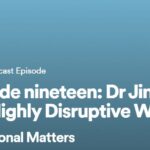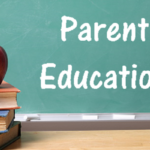Did you read the article in the New York Times last week discussing research that demonstrated the clear importance of kindergarten to later success? It was a real eye opener for many people who are involved in public education and real confirmation for those of us who have advocated for true reform in an American public-education system that has been in steady decline for years. And, in an odd sort of way, it confirms the wisdom of the 1988 book, All I Really Need to Know I Learned in Kindergarten.
Three findings were most compelling. First, children who learned more in kindergarten, compared to similar students, were less likely to be single parents, went to college in higher numbers, had higher incomes, and had retirement plans. What was most striking about these findings was that they stand in sharp contract to other research involving test scores indicating that quality early education had a diminishing effect on students as they progress through elementary and high school.
The second important finding was that the quality of teachers has a direct impact on the long-term success of students, not just on test scores. This result is one of those “We didn’t need science to tell us the obvious” observations, but it does defang arguments made from theory, conjecture, anecdote, or ideology suggesting otherwise. Class size had some effect as did the socioeconomic status of students in classes (the higher, the better all students performed). But the data demonstrated unequivocally that better teachers had the most significant influence on their students in adulthood. The researchers estimated that, based on the differences in adult income of the different classes of kindergarteners, exceptional teachers are worth $320,000 a year. That dollar figure doesn’t include other personal, economic, and social gains such as improved health, more stable marriages, better parenting, and reduced crime. And these gains are likely to increase exponentially with each succeeding generation.
The third finding, though less clear, is that kindergarteners are gaining something very powerful from quality early education. The researchers didn’t speculate on what those benefits are, but some obvious ones are worth considering. These early school experiences may instill a belief in the value of education and a joy (or at least an appreciation) for learning. They may build students’ confidence in their competence and their ability to learn. These students may learn important life skills, as the article suggests, such as motivation, discipline, patience, and persistence, all qualities that aren’t directly assessed by testing.
Some provocative inferences can be drawn from these findings. These more ethereal gains from quality early education aren’t resilient enough to overcome the debilitating environment of bad schools and result in higher test scores. Yet, they are hardy enough to resist the discouraging culture and experiences of bad schools and reemerge in adulthood with, as the research shows, startling benefits.
Several lessons emerge from this article. First, testing isn’t a valid measure of educational attainment and long-term benefit. As has often been reported, children who attend quality early education, such Head Start, suffer from a “fade out effect” in which any gains that are made tend to disappear, based on test scores, as children progress through school. Yet, consistent with my indictment of testing, the research found that there were clear benefits to children who attend quality kindergarten that are realized in adulthood. As the lead researcher noted, “We don’t really care about test scores. We care about adult outcomes.” Could the obvious have been stated any more clearly? Doesn’t this statement shoot holes in the use of testing as the end-all, be-all of Race to the Top as a means of assessing students’ academic benefits and progress? What it does clearly demonstrate is that our current battery of academic-assessment tests simply don’t measure what we need them to measure and, as a result, should be reconsidered.
The second lesson is that teachers matter. As such, they deserve not only our respect — sadly, teachers are typically considered to be pretty far down on the career food chain — but also much better pay. Thankfully, as noted in the New York Times article, school districts around the country are showing signs of getting this message and starting to pay teachers accordingly (and teachers unions are getting the message that contracts based on seniority and tenure just won’t fly these days).
The final, and most important, lesson is that quality early education makes a huge difference. And quality early education is a very good investment. We spend billions upon billions of dollars struggling to deal with problems after the fact, such as lack of job skills, ill health, high unemployment, drug abuse, broken families, and high crime rates, all of which result partly from poor education, with little to show for those dollars spent. Why not prevent these enormous social problems by ensuring high-quality early (and later) education. Imagine the economic gains when you multiply that $320,000 per class by every kindergarten class of disadvantaged students in America by the decades ahead of us. Based on my very rough calculations, it is safe to say that is far into the trillions of dollars.
I don’t want to get into an argument with deficit hawks or libertarians about how to pay for education reforms to bolster early education. But it seems obvious that, based on this data, a well-used investment in children, teachers, and schools now can have massive individual, economic, and social benefits twenty year later and beyond.


